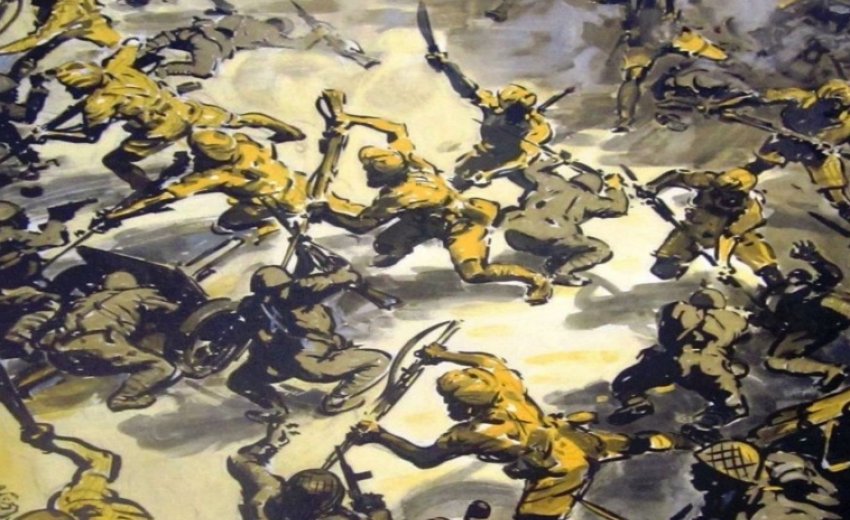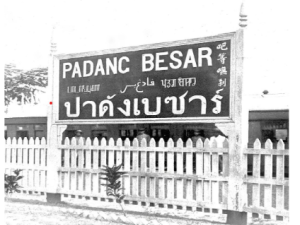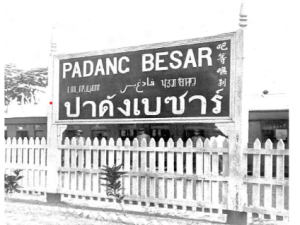Co-written by Harprabhjeet Singh Bedi
"This very brave act has never been fully told, so due credit has never been given to these men who fought so bravely. The Sikh soldiers with shouts of Sat Sri Akal charged up the rear slope of Thompson Ridge. They stormed the Japanese lines with their bayonets bristling in the sunlight. Their eyes aglow with fury of battle. The noise of the guns was deafening and then suddenly firing stopped. The Japanese were licking their wounds, their dead lying in trenches and some of them throwing away their arms in a desperate bid to escape, others being bayoneted before they could turn. Once on the objective, the Sikhs continued the slaughter firing on groups attempting to cover. The bogey of the super Japanese samurai warrior had been laid bare".
During the War, most families' telegrams came to be associated with bad news. Not surprisingly families came to dread when the arrival of a telegram and were afraid to open them. It was a telegram no parent looked forward to receiving yet one that millions of them eventually read whether they liked it or not.
In Framwellgate Moor, Durham, England a father read these words with a heavy heart: ~
Dear Mr. Lamb
'Deeply regret to inform you of report received from the Far East that Lt. Charles Douglas Lamb was killed in action 2nd January 1942.'
- Secretary, Military Department India Office
Lt. Charles Douglas Lamb was 2nd in command of a Company, of the 1st Battalion/8th Punjab Regiment, commanded by Captain Graham, which was occupying a position in Kampar, Perak Malaya. The Japanese took a small hill which jeopardized the whole defensive position of the Brigade. The company of which, Lt. Lamb was selected to counter attack and take the hill at all costs. In an effort which can only be described as an exceptional display of gallantry, Captain Graham and Lt. Lamb led their company 1st/8th Punjab Regiment to complete success. Lt. Lamb was killed doing his duty in a highly gallant manner. The company commander, Captain Graham was mortally wounded earlier and was evacuated to hospital where he died a day later.
On 2nd of January 1942, Captain Graham assisted by Lt .Charles Douglas Lamb led a company of Sikhs to counter charge the Japanese positions. "As one man they rose with their war cry, of "Bole Sohe Nihal, Sat Sri Akal!" Their cheering rose to a roar as they charged and leapt to meet their assailants. It was bayonet to bayonet, and the Imperial Japanese soldiers were outmatched. They broke and ran. The Sikhs swept forward to re-seize the enemy positions, Japanese soldiers fled towards the jungle and the situation was again restored.
More than Seventy-seven years after the start of World War Two on December, 1941, many, particularly younger generations, are largely unaware of the carnage that claimed the lives of many of their forefathers on the battlefields of Malaya.
The Kampar position was the strongest of any occupied in Malaya. The Japanese Commander Lt. Gen. Takuro Matsui was forced to admit defeat and General Yamashita ordered further amphibious landings to be made to the rear of the British lines. Japanese newspapers at the time claimed 500 Japanese casualties against an Allied loss of over 150. It was the first serious defeat the Japanese had experienced in the Malayan campaign.
The British Battalion D Company made two counter charges to try to drive out the Japanese. Later a third charge was made by the company of Gujars from the Jats/Punjab Regiment, but it failed after heavy casualties.
The fourth and final charge was made by a company of Sikh sepoys under Captain John Graham and Lt. Charles Douglas Lamb. As for the bravery, leadership and self sacrifice of Captain Graham of the 1st /8th Punjab Regiment at Kampar, his gallantry was an epic which must surely rank with any act of valour in the two world wars.
Shocked at such resistance the Japanese chief planning officer, Col. Masonubu Tsuji, later devoted an entire chapter of his memoirs entitled 'The Battle of Kampar Fortress' which appeared in his book, 'Singapore -The Japanese Version'.
A passage from General Percival's book about the incident at Battle of Kampar is worth quoting:
... And finally, when the enemy had captured a key position and the battalion reserves were exhausted, there was a charge in the old traditional style by the Sikh Company of the 1/8th Punjab Regiment. Through a tremendous barrage of mortar and machine gun fire they went, led by their company commander, Captain Graham, until he fell mortally wounded, and then by their Subedar. The situation was completely restored, but only thirty of this gallant company remained. The battle of Kampar had proved that our trained troops, whether they were British or Indian, were superior man for men to the Japanese troops.
in the Battle. They sacrificed their lives so that future generations
can live in honour, peace and prosperity.
The following excerpts are from a letter which was sent by E. Armstrong (Major) dated 16th November, 1945 addressed to Mr. David Lamb the father of Late Lt. Charles Douglas Lamb, of 1st Battalion /8th Punjab Regiment.
'On the last afternoon of the battle of Kampar the enemy seized a position in rear and flank of the British Battalion, of the Brigade and in view of the general withdrawal due that night its recapture was essential. A counter attack by a company of the 9th Jats failed and our 'A Company' of which your son was second in command was ordered to retake the area.
Their attack was magnificently carried out and in face of terrific fire at short range was a complete success. Very heavy losses were inflicted on the Japanese, mainly with the bayonet, but our company lost 70% killed and wounded and your son was shot dead as the objectives were carried.
Stopping the Japanese advance
The Japanese tanks were held up by the damaged Kuala Dipang iron bridge and the five bridges further down the road to Kampar. The strong British artillery and the mortars kept the Japanese from repairing the dynamited bridges. For the first time in the campaign, the British artillery bombardment frustrated the Japanese advance.
"Lt. Col. Peter Kemmis Betty (631.1A) was in command of a Ghurkha rifle company. They were ordered to fall back on Kampar where he was in command of a detachment holding a vitally important bridge over the Sungai Dipang River.
The bridgehead was under heavy artillery, mortar and small arms fire. When all the troops had crossed over, the demolition charge failed to destroy the bridge. This happened again and, once more, Kemmis Betty led his detachment forward under constant fire to cover the demolition party. At the third attempt, the sappers were successful and he was able to extricate his small force. Lt. Col. Peter Kemmis Betty awarded the Military Cross for holding a vital bridge in Malaya"
In September 1941, 2nd Battalion, 2nd King Edward VII's Own Ghurkha Rifles (2/2 GR), part of 28th Indian Infantry Brigade, 11th Indian Division, moved from Secunderabad, India, to Ipoh, Malaya.
The withdrawal of the 12th and 28th Brigade Groups began at 1900 hrs. on the 27th December and continued throughout the night. The 12th Brigade Group, to which had been allotted the task of delaying the enemy's approach to the Kampar position north of Dipang, occupied a position south of Gopeng, while the 28th Brigade Group took up positions astride the defile road which protected the right flank of the Kampar position, with one battalion in the Tapah area. The large bridge over the River Kampar at Dipang was destroyed after several abortive attempts. Lt. Col. Peter Kemmis Betty held a vital bridge long enough for his own troops to cross, and then blew it up successfully.
His Military Cross was gazetted in 1946. The citation for the award stated that "although worn out himself, his cool judgment, calm orders and cheerful bearing so inspired his exhausted men that not once did his Company fail to hold its position or withdraw until ordered to do so. Despite suffering heavy casualties, it remained an organised, disciplined fighting force right up to the surrender." Lieutenant-Colonel Peter Kemmis Betty, MC, Commandant 2/2nd Gurkha Rifles 1958-60, was born on May 9, 1916. He died on August 25, 2016, aged 100.
It is worth recording that during their stay at Kampar the British battalion lost over 100 officers and men evacuated with malaria.
Resources :~
- The Family of Late Lt. Charles Douglas Lamb (The photographs of Lt. Charles Douglas Lamb, Telegram and Letters.
- The Family of Late Lt. Col. Peter Kemmis Betty MC.
- CWGC
- London Gazette ~https://www.thegazette.co.uk/London/issue/37671/supplement/3918
- Description for the header image: Smashes Japanese Aggression .IWM PST 16915 Courtesy of Imperial War Museum.
- The War in Malaya - Lieut. General Arthur Ernest Percival






